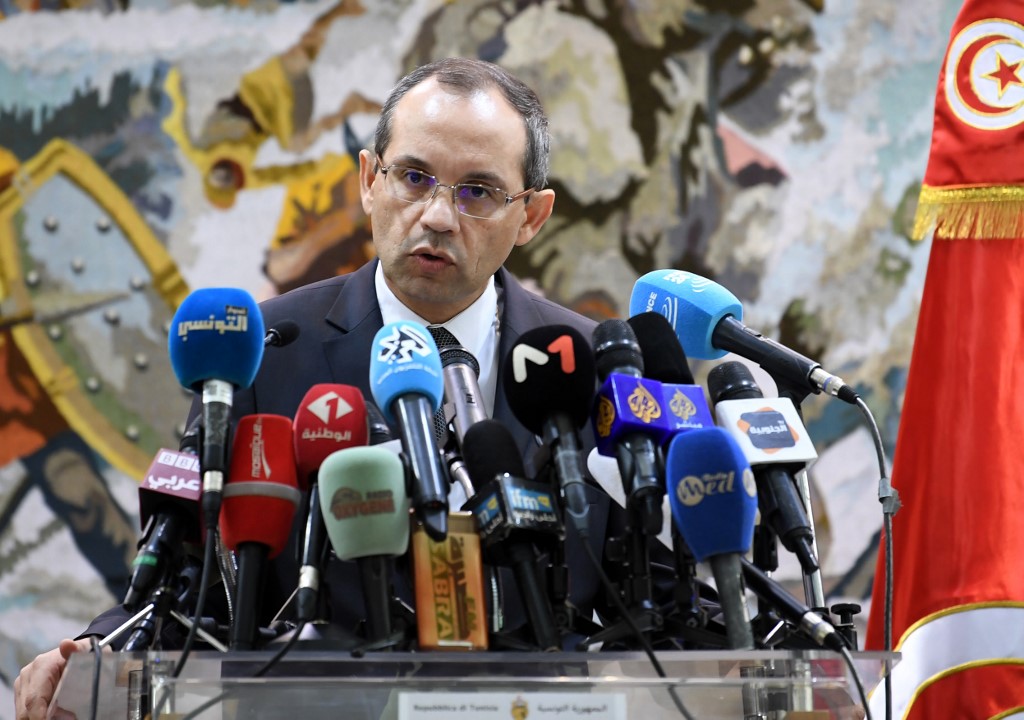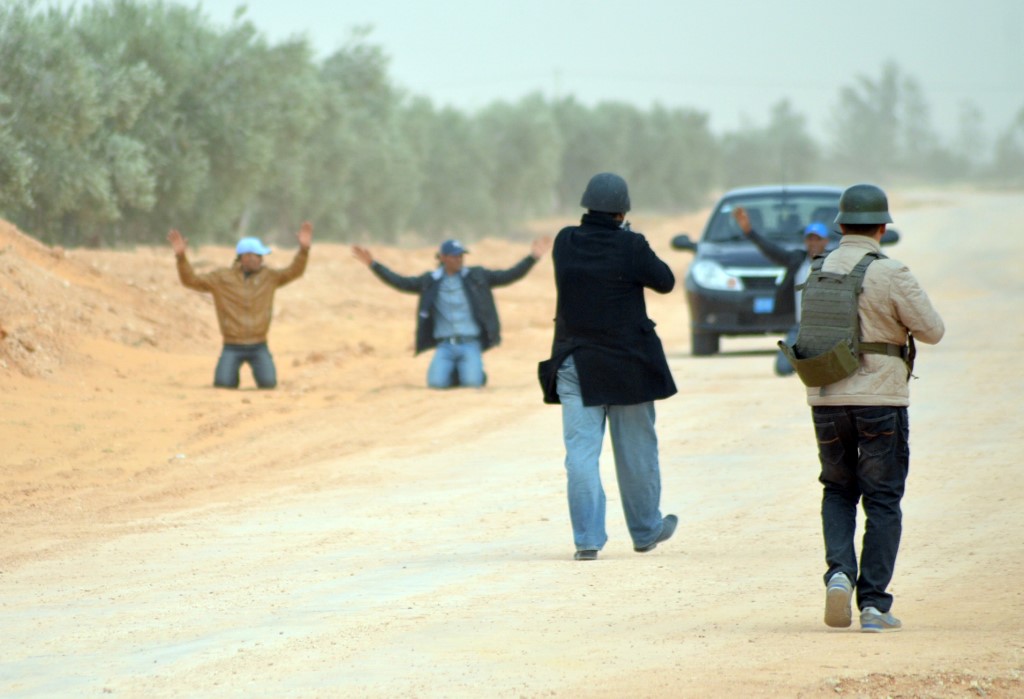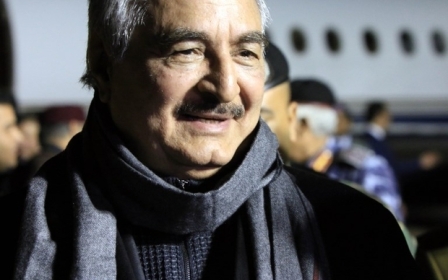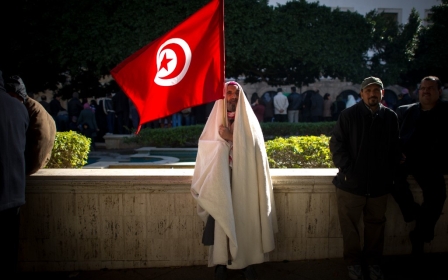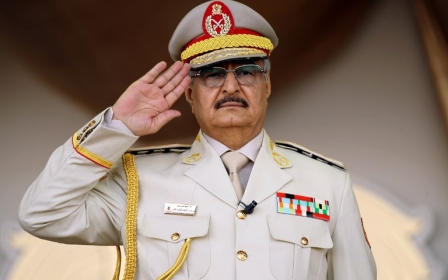Familiar fears in Tunisia as Haftar's Libya offensive rages next door
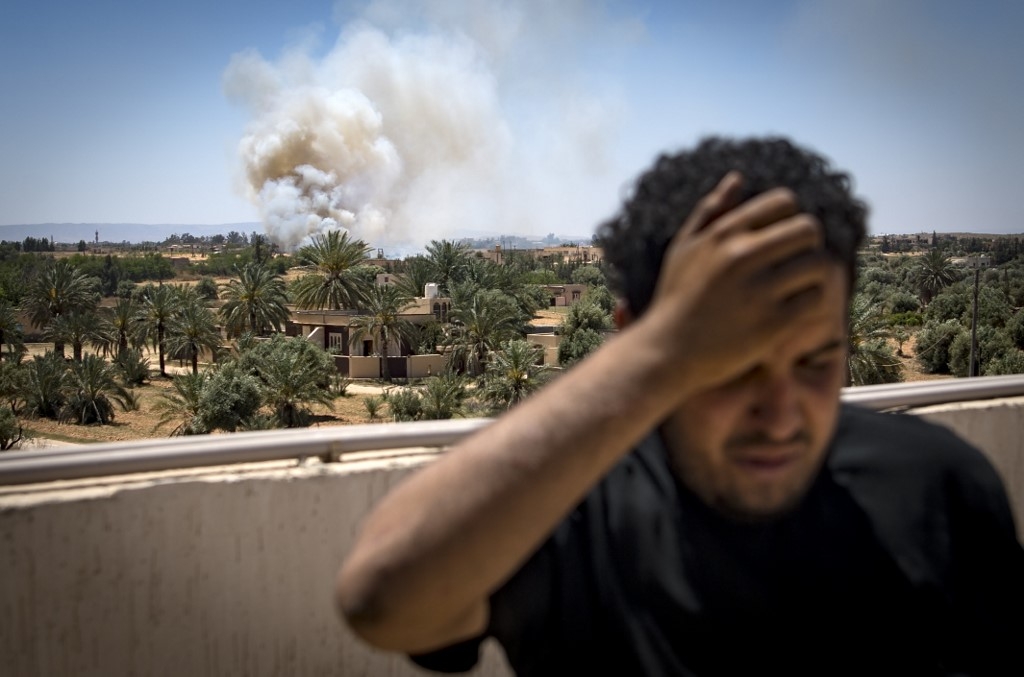
It was nearly a month ago that eastern Libyan commander Khalifa Haftar ordered his troops to advance on the capital Tripoli, but Tunisian politicians say they are once again feeling the repercussions of the civil war next door – and fear even further blowback.
The impact of the war on Libya's neighbour has ebbed and flowed since the overthrow of longtime leader Muammar Gaddafi in 2011, largely affecting trade between the two countries and sending waves of migrants into Tunisia.
'There’s a direct impact because we are neighbours'
- Ameur Larayedh, Ennahda MP
But with Haftar’s latest offensive, lawmakers say there has been a notable increase of refugees into Tunisia. Paired with concerns about the country’s sovereignty, they say a swift resolution to the conflict is paramount to avoid a repeat of the bloody histories of Iraq and Syria and also to protect the country during a fragile period of economic crisis and high political tension.
“There’s a direct impact because we are neighbours,” Ameur Larayedh, an Ennahda MP for Medenine, a city in southern Tunisia about a two hour drive from the Libyan border, told Middle East Eye.
Concerns over the country’s sovereignty following Haftar’s advance were fuelled by several media reports, as well as the detention at the Tunisian border of armed men with ties to France.
New MEE newsletter: Jerusalem Dispatch
Sign up to get the latest insights and analysis on Israel-Palestine, alongside Turkey Unpacked and other MEE newsletters
On 19 April, Tunisian MP Lamia Mlayeh, citing unnamed “competent Tunisian agencies”, posted on social media that a Qatari military plane landed in Djerba, an island off the coast of Tunisia, to transport arms to Libyan militias. Tunisia’s General Directorate of Customs, however, denied that the Qatari plane was loaded with weapons and said it had landed for technical reasons.
Then, at the end of the month, Tunisian news site Univers, referencing “reliable sources”, reported that a Turkish military plane had also landed in Djerba and raised questions about whether it was linked to the Qatari plane, despite the fact that customs officials denied anything untoward.
Also in April, 13 armed men with French diplomatic passports were detained in Tunisia while crossing from Libya. Tunisians sources told Middle East Eye that they were providing logistical support for Haftar’s forces. Paris denied the reports, saying the men were sent to protect the French ambassador in Tripoli.
'A Libyan solution made by Libyan people'
While murky, the reports have fed concerns over Tunisia’s security as international powers continue their proxy wars in Libya, with related fears that the worst is to come in the form of more serious terrorist incursions.
The impact on security is being taken very seriously in Tunis. On 28 April, Tunisia’s Minister for the Interior Hichem Fourati held an emergency meeting with his counterpart in Libya’s internationally recognised Government of National Accord (GNA), Fathi Bashagha.
According to TAP news agency, Fourati repeated Tunisian President Beji Caid Essebsi’s call for an immediate ceasefire in the country and a return to a political process.
Politicians across the Tunisian political spectrum have a stronger message still, demanding that all countries cease their military interference in Libya and stop arming militias and Haftar alike.
Mohsen Marzouk, secretary general of the centrist party Movement Machrou3 Tounes, warned Western powers in particular of trying to play “games played in Afghanistan and in Syria and expecting different results”.
He highlighted the urgent need to control the overwhelming amount of weapons in Libya that have enabled conflict to continue.
“We are not talking about light weapons, we’re talking about tanks and, in Misrata, they have fighter jets,” he said.
He also said that peace in Libya cannot “come at the price of losing freedom and democracy” and “we have to maintain whatever is possible from Libya’s political gains”.
It’s naive, he said, to think a military solution wouldn’t be part of the process in Libya, but it must go side by side with a political solution and should be “a Libyan solution made by Libyan people”.
International powers, he underlined, should only support national reconciliation and do no more in the country.
Larayedh, the Ennahda MP, told MEE that Tunisians are against Haftar’s assault on Tripoli.
'I don’t trust the international community. They have destroyed their own interests'
- Mohsen Nabti, Taya Shabbi spokesperson
“We are against all military interference in Libya whether from neighbours or from members of the international community,” he said.
Referring to foreign powers supporting Haftar and his Libyan National Army, Larayedh said it “is a very bad approach to support a military dictator”.
Mohsen Nabti, spokesperson for (Popular Wave), one of the groups which makes up the leftist Tunisian political alliance Front Populaire, said Libya is “a victim of a conflict of international interests”.
“I don’t trust the international community. They have destroyed their own interests… The international community has proved its failure [to resolve the conflict in Libya],” Nabti said.
Nabti was especially critical of France, questioning if the support the country is giving to Haftar and his LNA forces is an attempt to make good on mistakes they had made.
When asked if France might be abusing its special relationship with Tunisia and using the country’s borders as a backdoor to Libya, however, Marzouk said emphatically: “That will never happen.”
Marzouk’s main fear is that the war in western Libya will create a climate where extremist Islamist terrorists can once again flourish and head for Tunisia. “In Mitiga Prison [in Tripoli] alone there are 150 terrorists detained, we fear that these people will use the chaos,” he said.
Fears over security
Concerns about the terrorist threat that Libya poses to Tunisia are based on the experience of the Battle of Ben Guerdane in March 2016 when 50 militants calling themselves “Islamic State” entered the town of Ben Guerdane, 20 miles from the Libyan border, and took control of the town before Tunisian counter-terrorist forces overpowered them.
The memory of this invasion of Tunisian soil is now looming large in the public consciousness. A month ago the town held the second memorial for those lost in the battle.
Moreover, it is not only the threat from terrorists coming from Libya themselves but also the concern that Tunisia could become more vulnerable to foreign interference too.
Nabti stressed that Libya is a tribal society with its own way of resolving disputes and the international community has not “respected the Libyan system”, instead projecting its own ideas about the future path for Libya.
He urged all parties to leave Libya, adding that the chaos in Libya “is a danger to the international community as much as to Libya itself”.
This article is available in French on Middle East Eye French edition.
Middle East Eye delivers independent and unrivalled coverage and analysis of the Middle East, North Africa and beyond. To learn more about republishing this content and the associated fees, please fill out this form. More about MEE can be found here.


